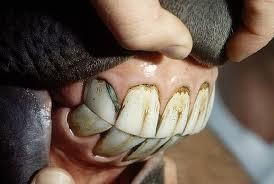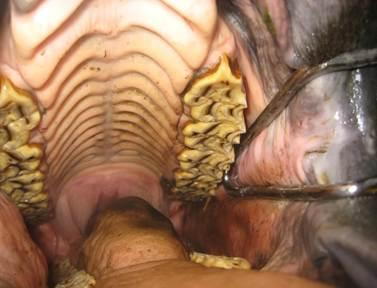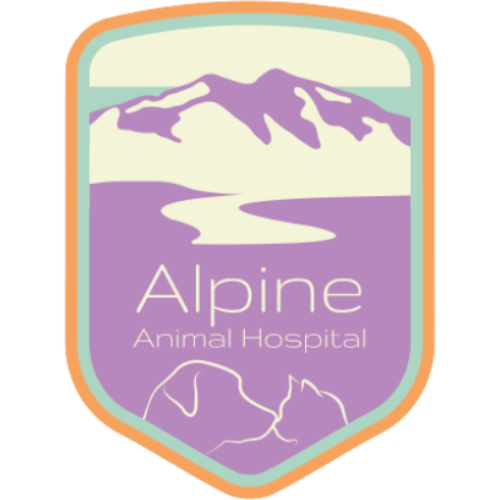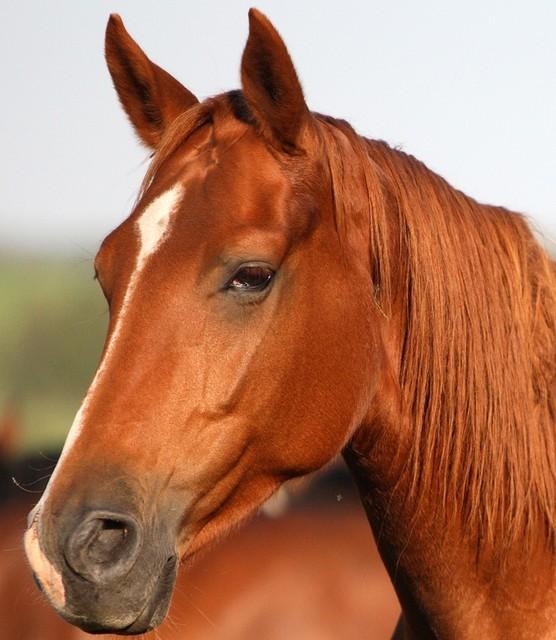By Louise Marron, DVM
As the field of veterinary medicine has evolved, the importance of high quality dental care has become increasingly apparent. The mouth serves a vital role as the entry point for nutrition, the foundation of health. The mouth is intimately situated with the upper respiratory tract (nasal cavity and sinuses). The value of a healthy respiratory tract is undeniable, and keeping the mouth healthy is important for both body systems. In fact, oral health is important for all of the other organs and body systems!
The best thing you can do for your horse’s dental health is schedule an annual oral exam with a knowledgeable veterinarian. Most horses will need to have their teeth floated at the same time the exam is performed. Floating involves filing off the sharp points, which form along the edges of the teeth as a result of the teeth grinding against each other during chewing.
The examination starts with a series of questions intended to gain an understanding of the horse’s health history, diet, housing, and performance. Next, we turn to observation of your horse’s general health, including hair coat quality and body condition. Vital signs, including the heart rate, respiratory rate, temperature, and hydration status are evaluated. The examination is then focused on maxillofacial structures including the chewing muscles, temporomandibular joints, lymph nodes, salivary glands, jaw bones, lips, and external contours of the head. The odor of the breath is noted. The nostrils are examined for symmetry of air flow and signs of discharge. The sinuses are percussed by tapping on different areas of the face. The range of motion of the mandible is assessed to look for signs of resistance as an indication of pain.
After carefully listening to your horse’s heart to verify healthy function, sedation is administered to help your horse relax for the more intrusive, yet highly important, oral examination. The incisors and canine teeth are located at the front of the mouth and can be visualized without special equipment. They are examined first to look for patterns of abnormal wear. The range of motion of the jaw is measured. Then a speculum is placed between the front teeth to safely hold the mouth open for evaluation of the inside of the mouth.
Each arcade (upper right, lower right, upper left, lower left) has a row of six closely situated ‘cheek  teeth’. The arcades are checked to see if any teeth are missing or broken. The crown height and the severity of the sharp points is noted for each tooth. The gums, tongue, cheeks, roof of the mouth, and area under the tongue are evaluated. The flat chewing surface of each tooth is carefully examined with the aid of a large dental mirror. This is important for understanding the horse’s endodontic health, which refers to the nerve and blood vessels on the inside of each tooth. If abnormalities are noted on examination, x-rays may be needed to further evaluate the tooth roots and jaw bones.
teeth’. The arcades are checked to see if any teeth are missing or broken. The crown height and the severity of the sharp points is noted for each tooth. The gums, tongue, cheeks, roof of the mouth, and area under the tongue are evaluated. The flat chewing surface of each tooth is carefully examined with the aid of a large dental mirror. This is important for understanding the horse’s endodontic health, which refers to the nerve and blood vessels on the inside of each tooth. If abnormalities are noted on examination, x-rays may be needed to further evaluate the tooth roots and jaw bones.
Some common dental problems include irregular wear (waves, ramps, hooks, steps), cavities, tooth fracture, periodontal infection (around the tooth), endodontic infection (inside the tooth), and tooth resorption. The development and progression of dental disease is complex. Accurate diagnosis of these conditions requires thorough examination. Dental disease negatively impacts a horse’s health and quality of life.
It is preferable to identify dental problems in early stages when treatment can restore the health of the affected tooth and eliminate pain it is causing. There are rarely outward signs of dental problems until disease is in advanced stages. By that time, the horse has been suffering and treatment has become more difficult and expensive.
The goal behind an annual dental exam and routine float is to provide preventive care to keep as many horses in the ‘good dental health’ category as possible. We want to help you ensure that your horse is one of them. By staying up to date with annual veterinary dental care, you can feel confident that you have done your part to help keep your horse’s mouth comfortable and functional for a long happy life!
Note: Non-veterinary Dental Care Providers (NVDCP) are unlicensed individuals who sell equine dental care services. Veterinary medical education and state licensure is required to legally dispense and safely administer injectable sedatives. NVDCPs debate the need for sedation in the provision of dental care. Although many horses will allow a calm, communicative horseman to put a metal file into their mouth to smooth their teeth without sedation, very few of them will tolerate a thorough oral exam which requires the horse hold very still–including the tongue–with a wide open mouth. Floating teeth without first examining them is akin to performing treatment without a diagnosis. If you have questions regarding this topic, or would like to discuss options that are available, please do not hesitate to ask. Your horse’s wellbeing is our highest priority and your education is critical for the wellbeing of your horse!
care. Although many horses will allow a calm, communicative horseman to put a metal file into their mouth to smooth their teeth without sedation, very few of them will tolerate a thorough oral exam which requires the horse hold very still–including the tongue–with a wide open mouth. Floating teeth without first examining them is akin to performing treatment without a diagnosis. If you have questions regarding this topic, or would like to discuss options that are available, please do not hesitate to ask. Your horse’s wellbeing is our highest priority and your education is critical for the wellbeing of your horse!

